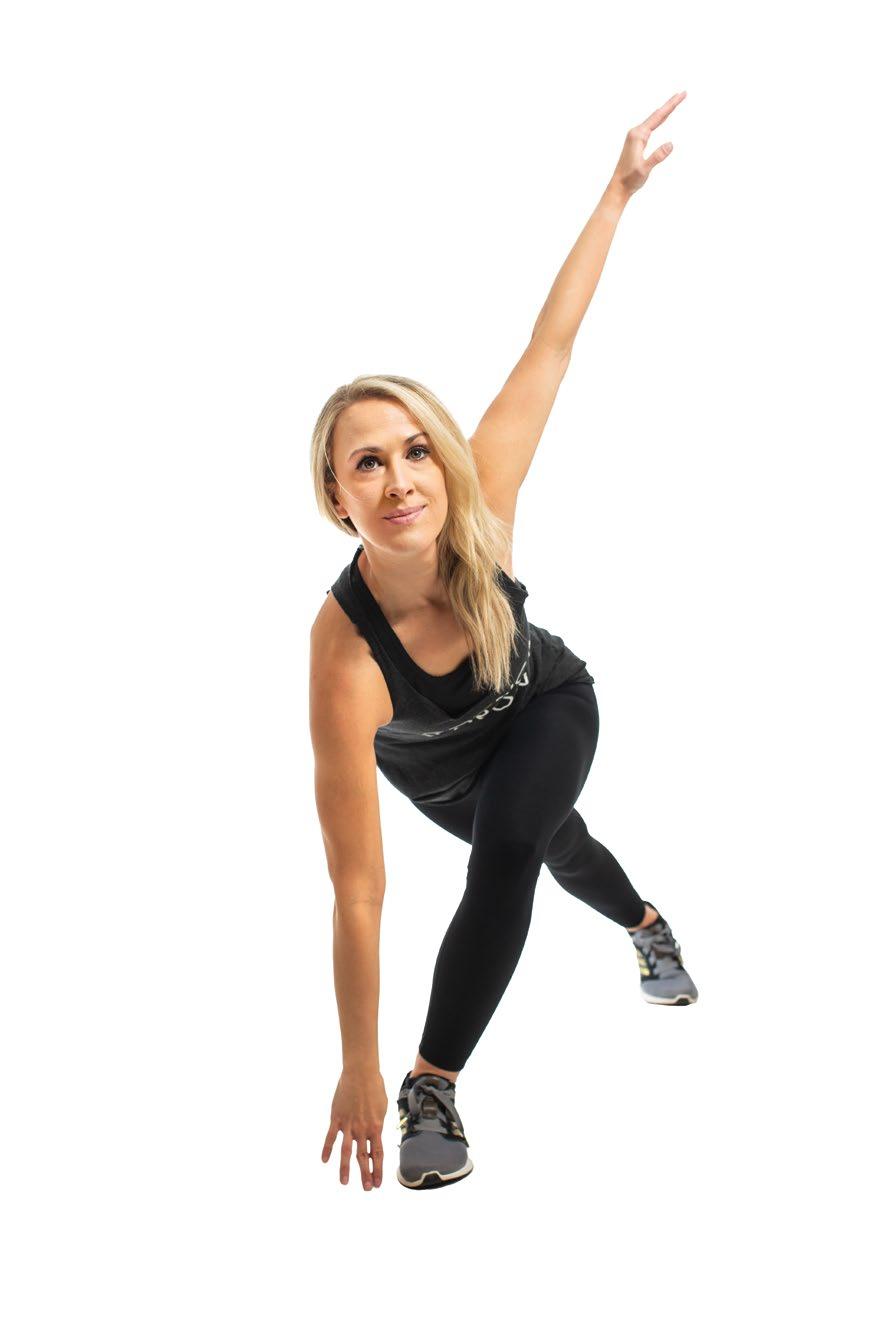
14 minute read
Minute
7 Types of Extracurriculars for Children
As children grow, it becomes necessary for them to explore different clubs and organizations, which offer experiences that will help them make friends, gain new skills, and oftentimes, determine their trajectory for years to come.
1Sports: From football and soccer to cheerleading and softball, sports are certainly a great way to keep kids physically active and build self-esteem.
2Volunteering: Even the youngest children can get something out of volunteering. Kiwanis organizations are a good place to start and can help build skills such as leadership and communication.
3Scouting: Boy or Girl Scouts can start your child on the path to becoming a well-rounded adult. These groups provide kids with the chance to learn new skills and create friendships.
4Academic: Not only do academic clubs give children the opportunity to grow and learn, they can also help them explore areas of interest that may shape their future.
5Music & Arts: Unleash your child’s creative side by exposing them to the arts. From dance to singing and painting, this could be the outlet they need to express themselves.
6Agricultural: Clubs such as 4-H are perfect for kids that are interested in plant and animal sciences. Here, they will gain knowledge while making new friends.
7Religious: Help your child learn more about their faith in religious clubs. These can be social or educational, and many of them include invaluable community service opportunities.
Avoiding Parking Lot Peril
Did you know that 50,000 crashes happen in parking lots and garages each year? On top of risks such as potholes, debris, poor lighting, or slippery conditions, there are also distracted drivers constantly coming and going. Add to the mix a child, and parking lots can seem loaded with danger. Follow these guidelines to keep your children safe. ESTABLISH RULES. Lay down ground rules for your child. These can be anything from never playing around parked cars, holding onto your hand or the cart, and only walking – not running – in parking lots. REWARD GOOD BEHAVIOR. Offer up plenty of praise when you see your child practicing safety measures, and consider keeping a sticker chart in the car for immediate gratification.
BUT ALSO GIVE CONSEQUENCES FOR MISBEHAVIOR. Let your child know if they do something unsafe, and go back to the car for a brief time-out if necessary. PRACTICE. If your child’s behavior has become a serious safety concern, take some practice trips where you don’t need to carry anything to or from the car. Use a parking lot that isn’t overcrowded, and review the rules before getting out of the car. BE A ROLE MODEL. Pay close attention when walking to and from the car, and avoid texting or talking on the phone in order to set a good example.
COPING WITH CABIN FEVER
Getting cabin fever, which is essentially feelings of isolation or confinement, is normal from time to time. With the winter season and current pandemic upon us, you may be experiencing these emotions more frequently than usual. Cabin fever can easily result in irritability, decreased motivation, food cravings, lethargy, and a slew of other negative feelings, but the good news is there are ways to cope.
For starters, try getting out of the house. Daylight helps regulate the body’s natural cycles, and if you are able to exercise, your body will release endorphins. Even a quick walk can make all the difference, but if you must stay inside, try positioning yourself near a window or tuning in to an at-home workout video.
Try to avoid TV or anything that is relatively mindless, and instead participate in activities that are engaging for your brain such as reading, putting together a puzzle, or playing a game. It may also help to set daily or weekly goals for yourself that are reasonable and achievable. Reward yourself when completing these tasks.
And it’s no secret the effects your diet can play on your mood. Try to maintain normal eating habits, stay hydrated, and limit high-sugar, high-fat foods.

Removing Stains 101
Whether you’ve had a cooking catastrophe or you’re just a messy muse, the clothes we wear can take a beating. But this doesn’t mean you have to toss them out when slips and spills happen! Read on for how to combat stains using a variety of methods. WATER: You can’t do any harm here. While it might not work on stubborn stains, it can always be a first line of defense. Just rinse, blot, and repeat. VINEGAR: Natural and effective, vinegar is great on wool or synthetics, but spot testing is advised. BLEACH: While this substance may be a harsh product to use, it’s pretty hard to beat its effectiveness when it comes to keeping whites looking like new. DISH SOAP: When mixed with water, dish soap is helpful for getting out a variety of things, but especially grease or condiments. ACETONE: While harsh on synthetic materials, acetone can work extremely well when removing paint stains. RUBBING ALCOHOL: Rubbing alcohol is especially tough on any chemical-based stains, as well as inks and dyes. DETERGENT: A great catch-all, if other methods fail, regular detergent or stain remover will often do the trick when scrubbed before laundering. HYDROGEN PEROXIDE: When it comes to getting out rust or blood stains, hydrogen peroxide is king.
Establishing Efficiency
HOW TO CURATE THE PERFECT HOME OFFICE SETUP
People are working from home now more than ever, and if you have struggled to recreate your office environment at home, you’re not alone. Try these quick tips to refresh your existing space into an area primed for productivity.
Invest in a comfortable office chair. Use a second monitor. Consider a standing desk. Purchase a quality mouse and keyboard. Follow ergonomic guidelines. Add plants and flowers to your setup. Manage wires. Make sure you have solid high-speed internet. Incorporate natural light. Maintain a brainstorming space. Add décor for a little personality. Clean your home office regularly. Use a separate computer for work. Separate work and living spaces. Have office hours. Lay down ground rules with your family members.
Vegetable Turkey Soup
SERVES 4
This freezer meal makes the perfect weeknight dinner to feed a hungry family! Garden vegetables and beans add color and fiber, while ground turkey serves as a hearty source of protein.
Ingredients • 1 Ib. ground skinless turkey breast, broken up • 3 large carrots, peeled and sliced • 3 medium zucchini, sliced • 1 small onion, chopped • 1 can no-salt-added tomato sauce
• 1 can no-salt-added cannellini beans, rinsed and drained • 2 medium garlic cloves, minced • 1 Tbsp. dried Italian seasoning • 1/2 tsp. salt • 1/2 tsp. pepper • 4 cups fat-free, low-sodium chicken broth
Directions 1. In a large bowl, stir together all the ingredients except the broth. Transfer the soup to a 1-gallon resealable plastic freezer bag. Place the bag flat in the freezer and freeze.
2. When ready to cook, thaw the bag overnight in the refrigerator. Pour the contents of the bag into a slow cooker.
Pour in the broth, stirring to combine. Cook, covered, on low for 8 hours, or until the turkey is no longer pink.
Nutritional Information Calories 224 | Total Fat 1.9g Sodium 314mg | Total Carbohydrate 27g | Dietary Fiber 7g Sugars 11g | Protein 26g
HEALTH & WELLNESS CALENDAR
February
5 National Wear Red Day®

The American Heart Association raises awareness about cardiovascular disease every first Friday in February (also known as American Heart Month) with National Wear Red Day®. The AHA encourages women everywhere to join the movement by not only wearing red but knowing their numbers and making positive changes toward a healthier heart. HEART.ORG/CHATTANOOGA
11 Chattanooga Heart Ball
Celebrating the American Heart Association’s efforts to ensure longer, healthier lives for all, the 2021 Heart Ball will be a virtual experience to remember. The schedule features compelling survivor stories, an auction, and a chance for attendees to “open their hearts” to a great cause. Brent and Stephanie Large of Horizon Stone, LLC will serve as the 2021 Chattanooga Heart Ball chairs. CHATTANOOGAHEARTBALL. HEART.ORG
March
2 Possibilities Virtual Event
Siskin Hospital for Physical Rehabilitation’s 18th annual Possibilities will be a virtual event beginning at 11:30 a.m. Katherine Wolf, whose life nearly ended with a catastrophic stroke just six months after her baby was born, is this year’s featured speaker. Proceeds from the community-wide fundraiser benefit Siskin Hospital’s charity care patients. Advance registration is available on the website or at 423.634.1208. SISKINREHAB.ORG
18 Dalton Heart Ball
In its 35th year, the Dalton Heart Ball will honor the American Heart Association’s life-changing work during this impactful virtual evening. The schedule features compelling survivor stories, an auction, and a chance for attendees to “open their hearts” to a great cause. Mark Clayton of Phenix Flooring will serve as the 2021 Dalton Heart Ball chair. DALTONHEARTBALL.HEART.ORG

April
10 Walk MS: Chattanooga 2021
Walk MS: Chattanooga will look a little different this year, but the National Multiple Sclerosis Society still needs your help in support of a powerful cause: ending MS forever. Participants are encouraged to walk with family and friends around their neighborhood or at a local park while staying socially distanced. Register online today! WALKMS.ORG
17 Believe Bash
Erlanger Health System Foundation’s signature event is a celebration of Children’s Hospital, the kids it serves, and the health heroes serving as physicians, nurses, and staff. Believe Bash’s theme for 2021, “Under the Big Top,” promises fun and excitement, and proceeds will support Children’s Hospital’s greatest needs. Co-chairs of the event are Dr. Bryan and Candy Johnson and Bill and Mary Kilbride. ERLANGER.ORG/BASH
25 HullaBOWLoo Auction
The Chattanooga Area Food Bank is announcing a reimagined HullaBOWLoo 2021 … a first-time, all-virtual online auction culminating on April 25! Taking the place of the signature social event, bidders will find a collection of great items while helping the Food Bank meet the needs of neighbors who come for hope, support, and nourishment. CHATTFOODBANK.ORG
MORNING POINTE OF GREENBRIAR COVE
PARKRIDGE HEALTH SYSTEM
ERLANGER HEALTH SYSTEM
ERLANGER HEALTH SYSTEM CHI MEMORIAL MEDICAL GROUP
PARKRIDGE HEALTH SYSTEM
UNIVERSITY SURGICAL ASSOCIATES
UNIVERSITY SURGICAL ASSOCIATES
Ian Shives
Ian Shives has been named the executive director for Morning Pointe of Collegedale at Greenbriar Cove. Shives has nearly a decade of senior living experience, and he holds a bachelor’s degree in social work from Southern Adventist University.
Whitney Evans Snardon
Parkridge Health System welcomes Whitney Evans Snardon to the role of market associate administrator and co-ethics and compliance officer. Snardon has served in several healthcare leadership roles, including as a director of a Kentucky hospital’s neuroscience service line.
Cheryl Wieber, MHA
Cheryl Wieber has been appointed as senior director of cardiovascular services at the Erlanger Heart and Lung Institute. Weiber, who has over 13 years of administrative experience in healthcare, has overseen clinical areas including cardiology and vascular and cardiothoracic surgery.
Kelly Arnold, MD
Dr. Kelly Arnold has been named the 2020 Family Physician of the Year by the Tennessee Academy of Family Physicians. Dr. Arnold was nominated for this annual award for her work founding and running the Clinica Medicos, which serves Chattanooga’s Latino community.
Adria Sherrill, FNP-C
Adria Sherrill has joined CHI Memorial Center for Healthy Aging. A graduate of the University of Tennessee at Chattanooga, Sherrill is an advanced registered nurse practitioner and certified in family medicine by the American Academy of Nurse Practitioners.
Will Windham
Will Windham has been named CEO of Parkridge East Hospital. He earned a Master of Hospital and Health Administration degree from Virginia Commonwealth University and has previously served as CEO of LewisGale Hospital Alleghany in Low Moor, Virginia.
S. Dave Bhattacharya, MD, FACS
Dr. S. Dave Bhattacharya is among the 2,125 initiates who recently became Fellows of the American College of Surgeons. He is a pediatric surgeon providing comprehensive surgical care for children from birth through young adulthood.
John C. Huggins, MD, FACS
Dr. John C. Huggins has met the stringent membership requirements to be initiated into the American College of Surgeons. Dr. Huggins focuses on general surgery, stereotactic and ultrasound-guided biopsies, hernia repair, and breast conservation surgery.
Q. My sister will be undergoing a kidney transplant soon. What will her recovery be like?
A. Following a kidney transplant, patients typically stay in the hospital between three and five days. What determines their discharge is the transition from pain shots to pills, the ability to drink fluids to stay hydrated, and that their post-transplant medication education has been completed. Patients return to the outpatient clinic within a week for labs, more education, to check their incision, and to confirm physical recuperation. Most patients will be off pain medication within the week, but generally feel sore with vigorous activity and fatigued by the end of the day for another one or two weeks. Patients during this time do feel a profound increase in their levels of available energy, as their body is healthier with a kidney keeping their bloodstream free of toxins. From there, they work with the transplant team to make and achieve their physical goals.
Alan Koffron, MD
Transplant & HPB Surgeon
University Surgical Associates universitysurgical.com
Q. How will I know when it’s time for my teenage son to get his wisdom teeth out?

A. Generally, we like to remove wisdom teeth between the ages of 15 and 26. Furthermore, there are several symptoms associated with impacted wisdom teeth that may suggest it’s time to visit your dentist or oral surgeon. If you are experiencing symptoms such as: swelling in the gums at the back of the mouth, pain or irritation when biting or chewing, headache or jaw ache, and/or swollen lymph nodes in your neck, don’t wait to schedule your appointment. Incoming wisdom teeth can also crowd the rest of your teeth, causing misalignment, so it’s best to keep an eye on your teen’s oral health to prevent them from any discomfort or a crooked smile.
Ricky Johnson, DDS, MD
Oral Surgeon
Implants & Oral Surgery of Chattanooga eastbrainerdoms.com
Q. My father has been diagnosed with carotid artery disease. What are some of his possible treatment options?
A. Carotid artery disease – when plaque clogs the blood vessels – is quite prevalent in the United States and a common cause of stroke. Significant carotid artery blockages should be treated in order to prevent stroke. There are multiple methods of surgically treating these blockages. The most traditional method of treatment in the United States is a carotid endarterectomy. This is where a surgeon makes an incision on the neck, removes the blockage, and repairs the artery. Newer techniques involve placement of stents in the carotid to prop open the blockage. These stents can be delivered from the groin or through a small incision at the base of the neck. Each of these procedures comes with a variety of risks and benefits. There are a multitude of reasons a vascular surgeon may choose to perform an open operation versus a stent, and vice versa. Discuss your options with a vascular surgeon to decide the best option for you.
William B. Harris, DO
Vascular Surgeon
Vascular Institute of Chattanooga vascularinstituteofchattanooga.com
Q. Losing weight is something I’ve struggled with for years. How do I know if I’m eligible for bariatric surgery, and if so, what are the options?
A. You are not alone – losing weight is often very frustrating and can cause many people to give up hope of ever reaching a healthy weight. Fortunately, bariatric surgery can help. Most people who qualify for bariatric surgery are clinically obese, with a BMI of > 35 and obesity-related comorbidities like high blood pressure or diabetes, or have a BMI of > 40 with or without comorbidities.
There are several surgical options, the two most common of which are gastric bypass and the gastric sleeve. It’s important to meet with a bariatric surgeon and their team and have a multidisciplinary approach, including nutrition, exercise, and support groups as well. Bariatric surgery begins a new lifestyle for many patients and can bring with it a new positive outlook on a healthier life. The surgical team can discuss your specific issues and customize a plan including the surgery that will help you the best.
Shannon Beierle, MD
Bariatric Surgery Specialist
Tennova Healthcare – Cleveland tennova.com
Q. My mother has been struggling with Parkinson’s disease. How do I know when it’s time to seek palliative care services for her?
A. To know when it’s time to contact Palliative Care Services (PCS), a patient and caregiver should understand what palliative care encompasses. Palliative care improves quality of life, provides an extra layer of support, and plans advance directives while focusing on pain and symptom management alongside present curative treatments. Parkinson’s disease is a neurodegenerative illness with physical symptoms and complications increasing as the disease progresses. Patients with early stages of Parkinson's may show symptoms of tremors, difficulty walking, and muscle stiffness. Late stages may show severe posture issues, dementia, difficulty swallowing, and inability to walk. In any stage of Parkinson’s, Palliative Care Services can provide care that improves the patient's quality of life and relieves caregiver stress. PCS treats a patient’s physical symptoms, coordinates care with the patient’s healthcare providers, and communicates with the patient’s caregivers. PCS offers support in the patient’s homes, the PCS clinic, or a hospital setting.
Minu Philipose, NP
Palliative Care Services
Alleo Health System alleohealth.org










